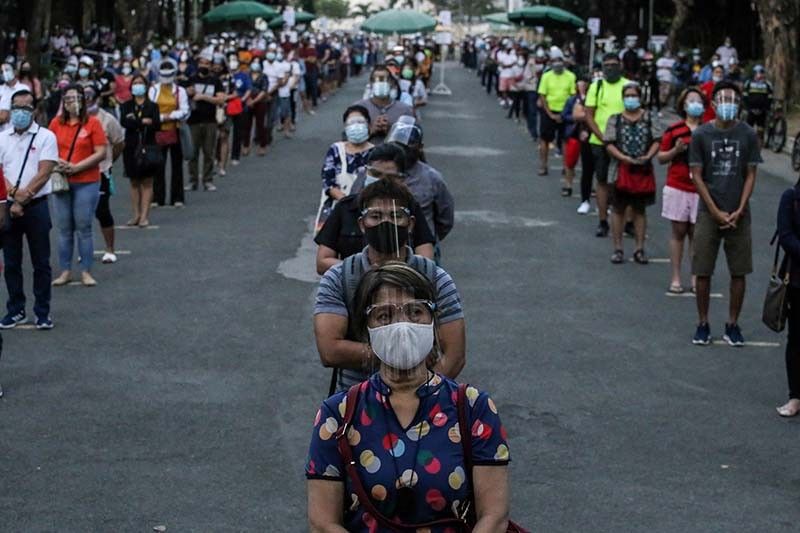Malacañang expects Philippines to shift to MGCQ by March

MANILA, Philippines — Malacañang already expects that the Philippines would be placed under modified general community quarantine by March, even as President Rodrigo Duterte has yet to decide on whether to accept recommendations to put the entire country under the laxest quarantine regime.
“We are expecting that Metro Manila and the entire Philippines would be placed under MGCQ,” presidential spokesperson Harry Roque said in Filipino on state-run People’s Television, saying that Duterte may be swayed by the recommendations by the government’s pandemic task force and by a majority of mayors in the capital region.
Roque said Duterte is expected to make a decision on whether the country will shift to MGCQ on Monday, but his verdict would be announced before the end of the month.
In anticipation of the easing of coronavirus curbs, which experts and the World Health Organization have warned against, the government’s pandemic task force has removed specific restrictions on mass gatherings imposed in areas under the stricter GCQ.
“We’re just reiterating that there are no more special rules under GCQ because all of us are covered by rules under MGCQ, at least starting March 1 and if the president allows it,” Roque said in Filipino.
Roque also announced that more foreigners would be allowed entry into the Philippines, with the government’s pandemic task force now letting all foreigners with valid and existing visas at the time of entry to come to the country.
The Philippines is easing restrictions in a bid to revive an economy badly hit by the pandemic even as it has been recording on average around 1,600 new COVID-19 cases daily since November and as it faces threats of new, more infectious variants of the coronavirus.
The Department of Health has also confirmed the detection of two mutations of the virus that causes COVID-19, but their public health implications are still unknown.
The Philippines has the second-worst outbreak of COVID-19 in Southeast Asia, with over 555,000 cases and over 11,000 deaths. — Xave Gregorio
National Economic and Development Authority director general Karl Chua recommended that the entire Philippines, including the National Capital Region, be placed under modified general community quarantine (MGCQ) in March. Bookmark this page for updates. (Main image by The STAR/Michael Varcas)
The Department of Health registers 16,989 more COVID-19 infections, bringing the national tally to 2,283,011.
- Active cases: 170,446 or 7.5% of the total
- Recoveries: 24,123, bringing the number to 2,076,823
- Deaths: 214, or now 35,742 in total
The Department of Health registers 18,056 new COVID-19 cases, bringing the national tally to 2,266,066.
- Active cases: 177,670 or 7.8% of the total
- Recoveries: 20,542, bringing the number to 2,052,867
- Deaths: 222, or now 35,529 in total
The Department of Health registers 26,303 more COVID-19 infections, pushing the national caseload to 2,206,021.
- Active cases: 185,706 or 8.4% of the total
- Recoveries: 16,013, bringing the number to 1,985,337
- Deaths: 79, or now 34,978 in total
The Department of Health reports an additional 17,964 COVID-19 cases, pushing the national caseload to 2,179,770.
- Active cases: 175,470 or 8.0% of the total
- Recoveries: 9,067, bringing the number to 1,969,401
- Deaths: 168, or now 34,899 in total
The Department of Health corrects count of new COVID-19 cases on September 8 to 17,883 from the original 12,751 it reported.
The agency adds 5,132 cases after technical issues in its COVIDKaya system. — Christian Deiparine
- Latest
- Trending





























